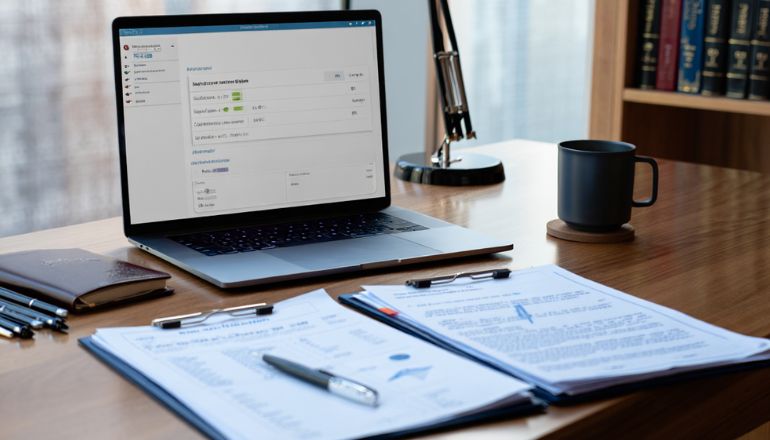How to Do a Background Check on a Real Estate Developer

Buying a property is one of the biggest financial decisions you’ll ever make. So wouldn’t you want to know exactly who’s building it? Doing a proper background check on a real estate developer can reveal red flags before it’s too late. From delayed projects to legal disputes, a little research upfront can save you from major risks down the road. In this guide, we’ll show you how to evaluate any developer with confidence, step by step.
Why You Should Investigate a Developer Before Buying
Before you commit to buying a condo or pre-construction unit, researching the developer behind the project is a smart and necessary step. A developer’s track record can tell you a lot about what to expect in terms of quality, reliability, and overall investment value. While glossy brochures and sleek websites may look promising, they don’t guarantee that the developer can deliver what’s promised, on time, or within budget. Doing your due diligence upfront helps protect you from future headaches and financial loss.
Risk of Delays, Bankruptcy, and Poor Quality
Buying a property from a developer without proper background research can expose you to several serious risks. One of the most common issues is project delays. Many developers miss their promised delivery timelines due to funding problems, poor planning, or regulatory setbacks. These delays can leave buyers waiting months or even years longer than expected, often while still paying a mortgage or rent elsewhere.
Worse still, some developers face financial instability or bankruptcy, especially in volatile markets. If this happens mid-project, construction could stop indefinitely, and recovering your investment can be legally complex and time-consuming.
Even if the project is completed, there’s the issue of poor construction quality. Developers with a weak track record may use substandard materials, rush the finishing stages, or neglect long-term durability, resulting in frequent repairs, safety concerns, and a decline in property value.
Step-by-Step Guide to Checking a Developer’s Background
Doing a thorough background check on a real estate developer isn’t just for cautious buyers; it’s a smart move that can help you avoid major risks. From legal issues to poor construction quality, many warning signs are easy to spot if you know where to look. This step-by-step guide walks you through the essential checks every buyer should perform before signing any contracts.
Check Corporate Registration and Licenses
Start by confirming that the developer is a legally registered business with valid licenses to operate in your region. You can usually verify this through government or real estate regulatory websites. Make sure the company is in good standing, has no record of license suspensions, and is authorized to undertake residential development projects. A legitimate and compliant developer is far more likely to deliver as promised and be held accountable if issues arise.
Review Completed Projects and Delivery Timelines
Next, take a close look at the developer’s past work. Have they completed similar projects on time? Visit their finished developments if possible, or look for photos and case studies online. Pay attention to build quality, amenities, and how well the property has aged over time. Delays are not uncommon in real estate, but consistent patterns of missed deadlines or compromised quality are red flags that suggest poor project management or financial instability.
Research Online Reviews and Legal Disputes
Public feedback can offer valuable insights into a developer’s reputation. Search for reviews from previous buyers, particularly those who purchased in similar projects. Look for recurring complaints about delays, defects, or customer service. Also, check for any past or ongoing legal disputes, such as lawsuits over non-delivery or breach of contract. These are warning signs that the developer may not prioritize transparency or buyer satisfaction. A pattern of unresolved issues should make you think twice before investing.
Signs of a Trustworthy vs. Risky Developer
Not all real estate developers are created equal. While some have a solid reputation for delivering high-quality projects on time, others may cut corners, delay construction, or disappear when problems arise. Knowing how to distinguish between a trustworthy developer and a risky one can protect your investment and give you peace of mind.
Reputation in the Industry
A developer’s reputation is one of the clearest indicators of their reliability. Trustworthy developers are often recognized within the real estate community for consistent performance, award-winning projects, and long-term partnerships with reputable contractors and architects. You’ll find their names mentioned positively in news articles, industry publications, and real estate forums. On the other hand, risky developers may have a trail of negative press, unresolved buyer complaints, and unfinished or poorly executed projects. Taking the time to research a developer’s standing in the industry can save you from future regret.
Transparency in Communication
Clear, honest, and consistent communication is a hallmark of a professional developer. From the early sales process through to post-purchase support, trustworthy developers provide accurate information, answer questions thoroughly, and don’t hide behind vague promises. They’re upfront about timelines, pricing, and possible delays. Risky developers, by contrast, may avoid direct answers, provide incomplete documentation, or change terms without explanation. If a developer isn’t transparent before the sale, it’s unlikely they’ll be reliable afterward. Always look for red flags in how they handle your inquiries.
Tools and Resources for Researching Developers
Conducting a background check on a real estate developer doesn’t have to be difficult; there are several reliable tools and platforms that make the process much easier. From official records to real-world feedback from other buyers, these resources can help you get a clearer picture of who you’re dealing with before you invest.
Government Portals and Public Records
Start with official government websites that track corporate registration, development licenses, and legal filings. Many countries and states offer searchable databases where you can check if the developer is properly licensed, registered, and in good standing. You may also be able to find permit histories, zoning approvals, or legal actions tied to their name. These public records provide a factual, unbiased view of the developer’s legal and professional history, something every investor should review.
Forums, Reddit, and Facebook Community Groups
While official records offer hard data, online communities reveal what past buyers and residents are actually saying. Platforms like Reddit, local property forums, and Facebook groups can be gold mines of firsthand experience. You can read honest reviews, complaints, and advice from people who have dealt with the developer, good or bad. Search for the developer’s name or project title, and look for consistent patterns in feedback. Just keep in mind that while online reviews are useful, they should be weighed alongside verified facts from formal sources.
FAQs
How do I find if a developer has legal cases?
Search government court databases or public records. You can also check news articles and legal forums for any ongoing or past lawsuits.
Is it safe to buy from a new developer?
It can be but only if they have experienced partners, transparent communication, and strong financial backing. Always do extra research before committing.














